Will Trump Be in the Driver Seat of the Special Relationship with Israel?

NEWS JUNKIE POST
Feb 13, 2017 at 5:51 am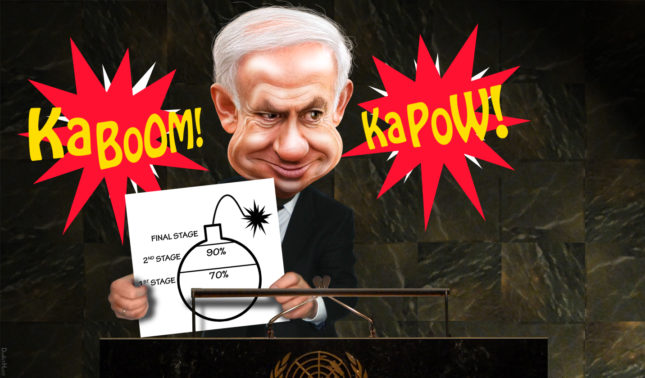
Israeli Prime Minister Benjamin Netanyahu will be in Washington on February 15, 2017, for an official visit with United States President Donald J. Trump. While he was a candidate, Trump accentuated his staunch support for the Jewish State during his campaign: he called PM Netanyahu Bibi, mentioned a controversial intention to move the US embassy from Tel Aviv to Jerusalem and gave apparent support to the illegal Israeli settlements in Palestinian land. The powerful Jewish lobby organization, American Israel Public Affairs Committee (AIPAC), indulged Trump with a barely audible lip service but was fully invested in a Clinton victory. Overseas, Clinton’s main puppet master, George Soros, through his media empire, including influential publications such as The Guardian and Le Monde, focused his attention, right before the US election, on smearing Trump campaign CEO Steve Bannon as dangerously anti-Semitic. In the end, only 25 percent of the Jewish vote went to Trump, as opposed to 72 percent to his opponent, former Secretary of State Hillary Clinton.
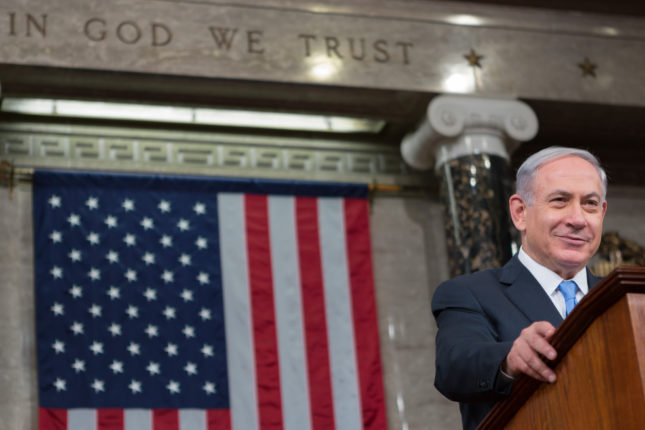
Despite the tensions between former President Barack Hussein Obama and PM Netanyahu, which had more to do with a personality clash than policy disagreements, the so-called special relationship between the US and Israel has not been reconsidered since 1980. It has been, in most instances, a relationship in which the Jewish State, using the powerful Jewish lobby with its vast political, financial, and media ramifications has, more or less, dictated the agenda and policies.
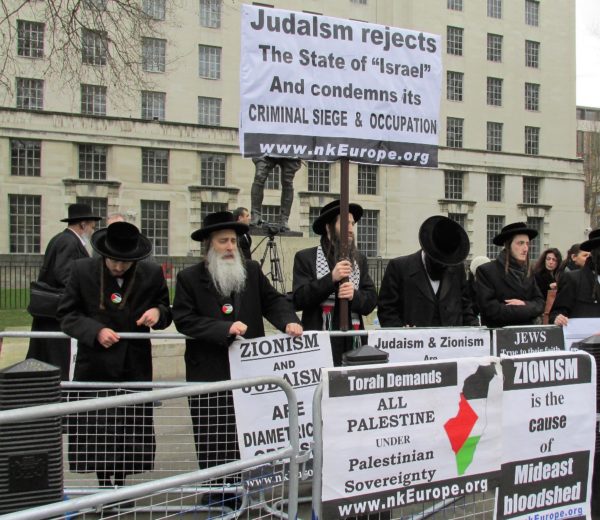
For the Trump administration to improve the dynamics of the special relationship and make it more favorable to US interests, it must take into consideration elements that have rapidly changed since the early stage of resolution of the Syrian crisis. These are: a fundamental geopolitical shift in the region due to the alliance of Turkey, Iran and Russia; the rapid downgrading of Saudi Arabia and Qatar as key power brokers; and most importantly the fact that a two-state solution giving Palestinians a proper country is imperative to bring any lasting peace to the Middle East.
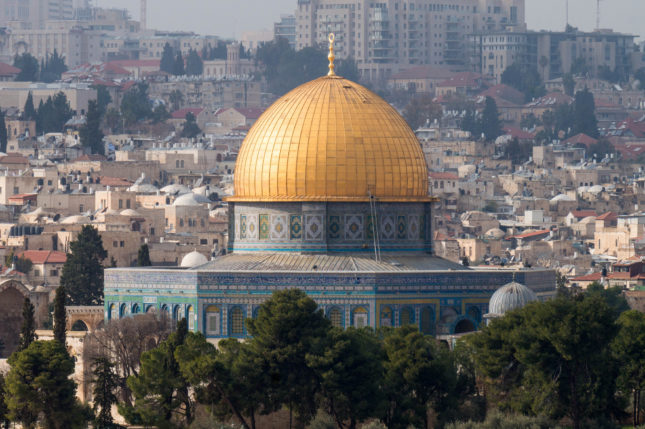
The two-state solution
PM Netanyahu is likely to put the focus of the upcoming talks with president Trump on his pet foreign policy topic, which is the so-called Iranian existential threat to the Jewish state. While a joint strategy in regard to the Islamic Republic will be a topic of discussion, Netanyahu might not succeed in dictating the agenda of the meeting or bullying Trump like his predecessor.

The Trump administration must be aware that the anti-Iranian rhetoric by the Israeli government is largely a smoke screen to hide a controversial vote, which took place in the parliament, to legalize retroactively the previously illegal Israeli settlements in Palestinian territories. A growing number of Israelis, members of the the Jewish diaspora, and a large majority of the international community are against the retroactive law and have strongly condemned it. In Western Europe, the legislation met popular and official outrage.

In Israel, there is a palpable public opinion shift in regard to Netanyahu due to his well-documented track record of corruption as well as his active participation in the globalist cabal that supported Clinton against Trump. Netanyahu’s policies, which are Zionist is essence, have isolated Israel internationally and could easily turn the country into a pariah state, on par with South Africa during the shameful era of apartheid.

PM Netanyahu and his associates, as well as his regional allies of circumstance, namely the ruling princes and Sheikhs of Saudi Arabia and Qatar, are part of a toxic globalist clique.This alliance between the Jewish State and the Wahhabists and Salafists, which is based strictly on their common anti-Iranian sentiments, is on the verge of collapse due to a major geopolitical shift where Turkey and Iran have become de-facto partners and regional power brokers, respectively for Sunni and Shiite Muslims. Washington, Paris, London and Berlin should soon realize that the key regional interlocutors to help resolve the wreckage created by decades of their incoherent policies are in Ankara and Tehran, not in Ryad or Doha. Perhaps then, peace could heal the miseries of the Middle East once and for all, and this peace imperatively includes a country for the Palestinians to call home.
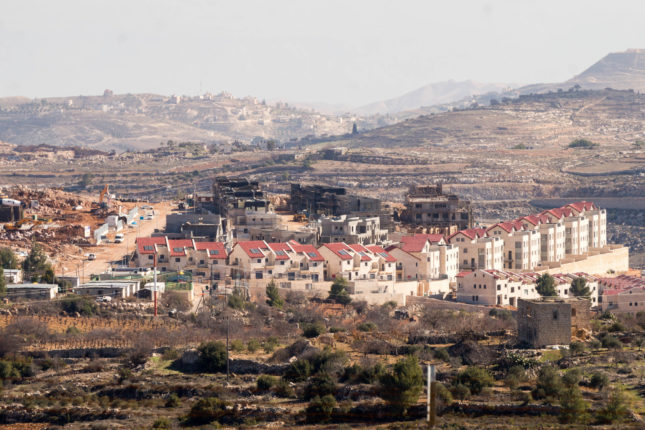
Netanyahu’s pie in the sky: an Iranian Green Revolution redux
Netanyahu addressed the Iranian people on FaceBook in late January 2017, to encourage them to overthrow their government. With an Iranian election coming up in May, the Israeli leader is obviously contemplating the folly to pursue regime change in Iran and will likely try to get President Trump to take the bait. Unfortunately for Netanyahu’s clumsy regime change pitch through social media, President Trump, unlike the Soros-approved Obama, appears not to be into pursing regime-change policies under the cover of fake revolutions. Mr. Netanyahu seems to be in need of a reality check, which might be delivered to him, face to face, by Mr. Trump.
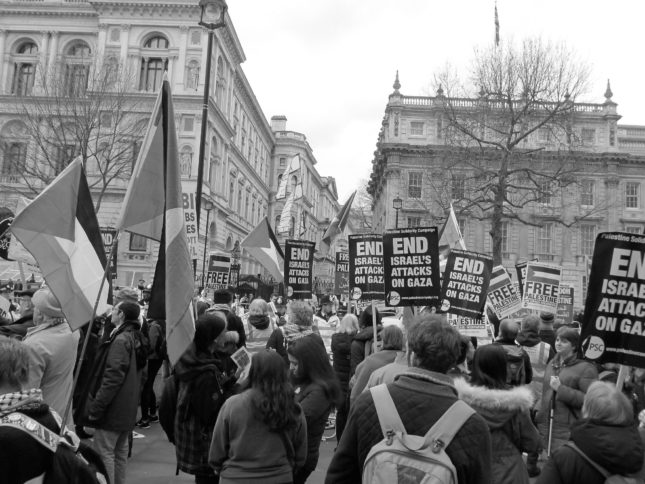
Let’s face it: the globalist world order project, designed by George Soros and his associates and surrogates, is collapsing everywhere. The color revolutions Orange in Ukraine, Black (ISIS) in Syria and Iraq, Purple on the US left coast, or — this one is completely laughable — Green redux in Iran have failed or are doomed. They are running out of funds and manpower. In 2017, secondary colors are a huge geopolitical fashion faux-pas! Globalism is out, national sovereignty is in.
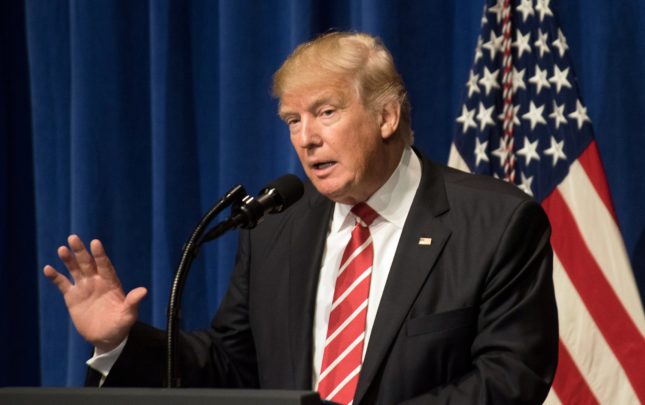
Trump the shrewd pragmatic
Despite the tough rhetoric towards Iran, the Trump administration has proven that it can skillfully navigate complex situations. President Trump seems to have surrounded himself with advisors who have different backgrounds and often opposite perspectives on policy issues, and he appears to be ultimately the man in charge in the new White House. PM Netanyahu might experience this first hand on February 15.
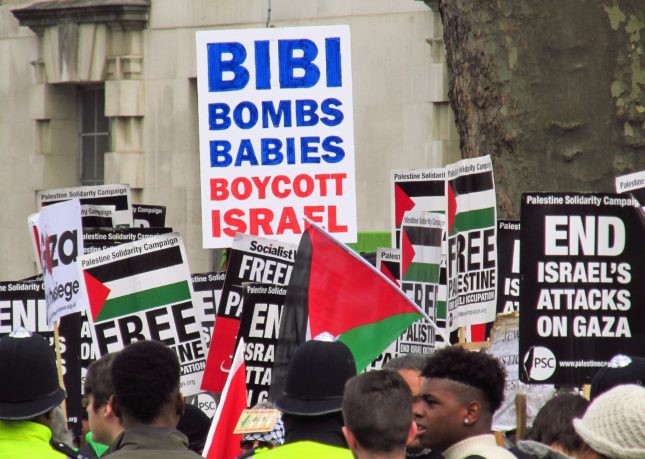
Before his trip to Washington, Netanyahu visited British Prime Minister Theresa May. He was greeted by large pro-Palestinian protests and a rebuke by the British leader to his request to bring back the sanctions on Iran, which were largely lifted after the 2015 agreement between the US, Russia, France, the United Kingdom, Germany and Iran. The Islamic Republic agreed then not to develop any nuclear-weapons systems. According to the nuclear proliferation watch international agency, Iran has fully complied with the deal. Since the six nations signed the agreement, Europe has restored economic activities with the Iranians. Therefore, even if the Trump administration intends to act tough with Iran to placate Netanyahu and AIPAC, Washington’s European partners will not side with the US and Israel, but instead with Iran and Russia.
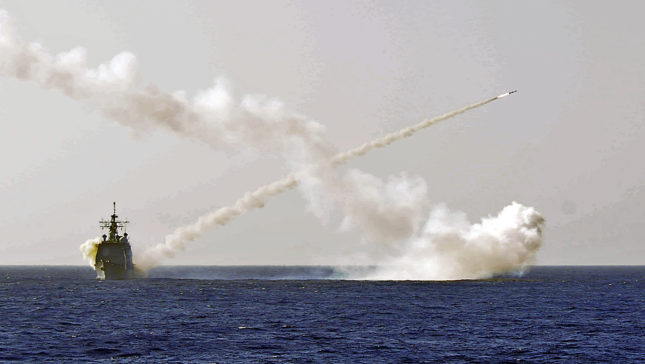
The recent long-range missile test by Tehran should be view in this context. The Netanyahu administration and some in the Trump administration have described the weapons test as a provocation and painted it as a sign of Iran’s inherent threat to Israel and peace in the region. It is, however, merely a message to Washington and potentially hostile regional powers that, compared to its previous missiles, Iran has a new long-range weapons-delivery system that can more accurately hit targets far beyond Tel Aviv, Ryad or Doha.

Dawn of a new era of diplomacy
The special relationship with Israel cannot and will not be drastically put into question by the new US administration. This relationship needs to be adjusted, however, to take into consideration some fundamental new geopolitical parameters. Iran, because of its role against ISIS, not only in Syria but also in Iraq, has become a key player in the region. Therefore, the globalist-neocon doctrine of isolating Iran and, worse, pursuing regime change is not only a bad idea but also no longer an option. By financing and arming Jihadist mercenaries to achieve their goal of toppling Syrian President Bashar al-Assad, the US and the West were largely the problem in Syria, Saudi Arabia, and Qatar. By defeating the Islamist soldiers of fortune, Russia, Iran, Hezbollah, and Turkey became the solution, and they are now working on a peaceful solution for Syria. The Obama administration and its European counterparts were not invited even to the sideline.

Another diplomatic push involving Russia and Iran has been initiated by Moscow. This one concerns a country destabilized since 2001 by a 15-year war, started by former President George W. Bush’s administration with NATO’s complicity. The country is of course, Afghanistan, which holds the well-deserved and documented historical track record of being the graveyard of empires. The Afghanistan talks will be held in the Russian capital on February 15, and they will involve Russia, China, India, Iran, Afghanistan, and Pakistan, to which the war was expanded during the Obama administration. The US is invited, and it would make sense for the US to be represented at a high level. In doing so, the Trump administration might help to wrap up the longest war in US history.
Editor’s Notes: Gilbert Mercier is the author of The Orwellian Empire. Image one by Donkey Hotey; photograph two from the archive of Speaker John Boehner; three, nine and eleven by David Holt; four, five, six, seven and eight by Ronan Shenhav; ten from the Chairman of the Joint Chiefs of Staff archive; thirteen by G. Gurpreet; and fourteen by Zoriah.
Radio Interview
Gilbert Mercier talks to Andrew Korybko on this topic, on Sputnik Radio’s Trendstorm.
Related Articles
- February 2, 2017 Big Brother George Soros’ Web Is Unraveling
- February 26, 2013 Kerry and Hagel: Can Two Vietnam Vets End the War in Afghanistan?
- July 3, 2012 Israel and America’s Duet “Bomb, Bomb, Bomb Iran!”: Back in the Limelight
- May 27, 2011 Why Does America Have A “Special Relationship” With Israel?
- July 17, 2021 Afghanistan War Outcome: Hope for Sovereign Nations Fighting the Scourge of Neocolonial Imperialism
- October 7, 2015 Will Russia, Iran, Hezbollah and Iraqi Shiite Militias Defeat ISIS in Syria and Iraq?












You must be logged in to post a comment Login